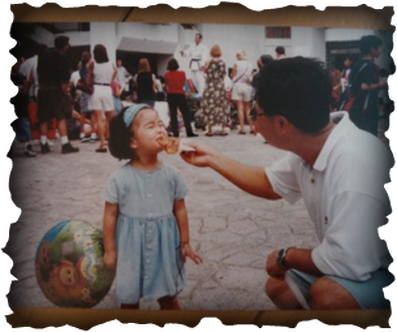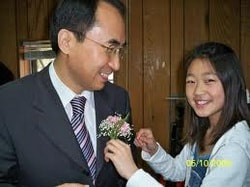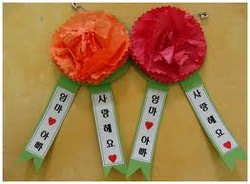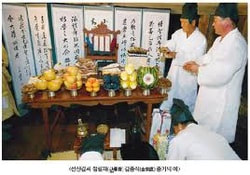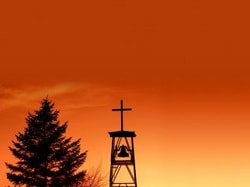- Home
- Process Worldview
- Community
- Art and Music
- Whitehead and Process Thinking
- Podcasts
- Spirituality
- Ecological Civilization
- Education
- Contact
- Social Justice
- Science
- Animals
- Sacred Poems
- Whitehead Videos
- Index of All Titles
- Practicing Process Thought
- Process Spirituality: A Spiritual Alphabet
- Recent Posts
I Have Been Called by God
Trans. Jea Sophia Oh
(my father's favorite hymn)
I have been called by God. I will go wherever you call, regardless of pain or pleasure.
Who shall turn me back from you? Even death can’t block my way. Death can’t block me.
I will go even a death valley or a desert with the Gospel you gave. I will carry love through the street like Sodom.
I will offer everything in my body with joy. I offer you everything in my heart.
Honor and glory, power and praise are all yours. I will carry the cross of shame and scorn.
I will serve with no name and fame but joy and thanks. I will serve with no name and fame.
부름 받아 나선 이 몸 이유선 작사
부름 받아 나선 이 몸 어디든지 가오리다 괴로우나 즐거우나 주만 따라 가오리다
어느 누가 막으리까 죽음인들 막으리까 어느 누가 막으리까 죽음인들 막으리까
아골 골짝 빈들에도 복음 들고 가오리다 소돔같은 거리에도 사랑 안고 찾아가서
종의 몸에 지닌 것도 아낌없이 드리리다 종의 몸에 지닌 것도 아낌없이 드리리다
존귀 영광 모든 권세 주님 홀로 받으소서 멸시 천대 십자가는 제가 지고 가오리다
이름 없이 빛도 없이 감사하며 섬기리다 이름 없이 빛도 없이 감사하며 섬기리다 아-멘
I love you, Dad: 아빠, 사랑해요
May 8th is “Parents’ Day” in Korea. Every year Parents’ Day, children make beautiful red carnations with paper for their parents and attach them on their parents’ chest. I used make carnations for my parents, beginning with my kindergarten days. For both me and my parents, that was a great deal of joy. I haven’t offered any flowers to my parents for 18 years, since I left Korea to study abroad. On Parents’ Day all I can do is to call my parents and say hello. When I called my father in the past, I usually cried and said, “I miss you. When are you visiting?” I was about to call my mother today (May 7) because Korean time runs 11 hours faster than American time. My mother called me instead and told me of my father’s passing.
I have been such an undutiful child. I had not seen my parents for 7 years since 2004, until just recently, during my last visit to Korea in April 2011, on the occasion of my father’s serious illness. My parents sometimes visited me until my father became paralyzed from a hit and run accident on the way back from “the dawn worship service: 새벽기도회” 8 years ago. I visited my father after that accident.
My father had been on bed for 8 years that caused bedsores. I regret that I always postponed visiting every year because I was working on my dissertation. When I last visited him my father couldn’t even do anything by himself, talking, eating, breathing, etc. But I saw my father’s tears, looking at me all the time when I held his hand. I opened the computer and showed my graduation pictures. He seemed to be happy for that. I remember the warmth of his hands, tears, dry skin, skinny bones, two holes on his waist from bedsores, … such a tiny human life.
He was such a loving father for me and a compassionate person to other people. He gave me uncountable love and teachings. Through his life I learned diligence, faith, sincerity, transparency, self-giving, passion and compassion. My father was a farmer in his young age. He converted to Christianity when he was 18. After that, he never missed the dawn worship service until the accident. That time was near the end of Japanese Invasion of Korea, when Korea was a strict Confucian society. My father’s family had the ancestral tables in the family shrine. My grandmother was a strong shamanistic Confucian who worshipped and bowed to a hundred spirits every morning. Since his conversion, my father deconstructed the ancestral tables and burned the family shrine. What he learned from church was to choose either Christ or ancestors. A young Christian youth with passion couldn’t go against his God, following “Thou shall not have any other gods before me!!!”
After that he was expelled from his family (as a whole community of Oh-오, 吳-family tree: 가문). All the relatives turned back against him. My father told me that at the time that was almost like being sentenced “a death penalty” because that means disconnectedness from his root.
In spite of the persecution of Japanese colonialism against Korean Christians and suppression of the Confucian society, my father was a happy young Christian who fell in love with God. Probably it is better to say that he fell in love with church. Every morning at 4 a.m. he ran 5 miles to his church and climbed up the belfly at the top and rang the bell. He opened the church door, cleaned the sanctuary, and prayed. For him that was the happiest time. My father had to stop school because he needed to take care of his mother and younger sisters. My grandfather died when my father was thirteen and his teen older brother died from World War II at the hands of a Japanese soldier. If he registered the school, he would have been drafted into the military by force during the Japanese occupation. To my father, his church was his school, the Bible was his textbook, and the pastor was his teacher. He loved the scriptures, reading the 66 books over and over. I found more than ten bibles with all the marks and thread bareness of old ones and two new ones in my April visiting. He probably purchased them for his future reading when he gets up. I may need to bring one of the new ones in my next visit as a keepsake from my father.
If someone asks me what kind of person my father was, I would say, “he was a Christian” with no reservation. All the memories and images of my father can be summed up into this one word. I will remember my father when Korean Parents Day comes every year and after, as my father remembered my grandfather with a great deal of sorrow. Some people might feel that he must have been unfaithful to his ancestors since he broke the ancestral tables and burned the family shrine which was against Korean Confucian tradition. However, in my observation, he was a very devoted filial son who truly remembered and mourned his father.
On every anniversary of my grandfather, my father made us get up at five in the morning. We (my brothers and I) really hated to wake up that early. We cried and complained a lot. But my father had already washed his body so clean and dressed up for a memorial service. He started a memorial service of my grandfather with a prayer. During the prayer he cried so much until his handkerchief was fully wet with tears. Even he squeezed it out and wiped his tears again and again. When he opened his eyes, his face was all covered with tears and nasal discharge. His prayer was so graceful, it touched me even though I didn’t know my grandfather.
My grandfather passed away a long time before my birth. As usual, my father shared his memories of his father with us. But in the story I couldn’t understand my father’s love and respect for his father at the time. In his memory, his father was a 6.0 ft tall man, so-called “Beanpole: 키다리아저씨,” though my father was only a 5.7 ft tall teenboy. Almost every night my grandfather didn’t come back home even after dinner time. My father looked for his tall father and found him drunk and asleep along the ridges between rice paddies. My father then put his big tall father on his tiny back, singing songs for him on the way home and whispering, “Dad, I love you. Have a ‘long long’ life: 아버지 사랑해요. 오래오래사세요.” To the despair of my father, my grandfather died from alcoholism when my father was thirteen. I heard this story over and over and always felt so sad. My tears were for a little teenage boy who was my father.
My father’s sermon was on Exodus 20:12, “Honor your father and your mother, so that you may live long in the land the Lord your God is giving you: 네 부모를 공경하라 그리하면 네 하나님 여호와가 네게 준 땅에서 네 생명이 길리라.” Though his father died when he was young, my father lived a long life in general. I believe that God blessed my father because he lived all his life with a beautiful heart and strong faith in God and love of other humans, especially his parents, though we deeply suffered from his passing. His filial piety to his parents was amazingly great. He took care of my grandmother until her passing in her age of 84. He was so faithful and dutiful son for her. His sermon was based upon Confucius teaching of reverence (경: 敬) toward parents and elders which was a hybrid sermon of Moses and Confucius. I may call my father a Confucian Christian and myself as well.
My father’s reverence and respect toward his parents were from Confucian tradition of Korea. Korea is a neo-Confucian society. For centuries in Korea, Confucianism has meant a system of education, ceremony and civil administration as first expressed by Confucius in his writings. Confucian concepts of social harmony and moral precepts permeated the intellectual life of the old East Asia and played a pivotal role in molding the Korean culture as we know it today. After so many centuries of indoctrination in these tenets, however, Koreans can hardly be said to have discarded the customs, habits and thought patterns derived from the system.
It is easy to see the influence of Confucianism on Koreans today. Older people are still very much respected. Among a group of friends or co-workers, the oldest person is expected to pay in a restaurant while the youngest is expected to serve the food. Still today, most young Koreans can imagine no greater trespass than openly defying their parents. Worshipping ancestors was not something we Christians should choose either YHWH or other gods (ancestors). Christian missionaries prohibited the ritual. This is from western-oriented epistemological violence against indigenous culture out of sanctioned ignorance. Ritual (예: 禮) is a beautiful tradition which teaches children to bow their parents (ancestral tables) and prepare their parents’ favorite foods even after they die as if they are still alive, sharing the sweet memories and delicious foods of their parents.
Now I think of my father’s tears on my grandfather’s anniversaries. Probably he became even sadder when he was reminded his deconstruction of the ancestral tables including his father’s and the family shrine where his mother prepared foods for his father. Probably he regreted that he couldn’t even give his father a bow and food. He mourned a lot for his dead father who died as a non-Christian. According to what my father learned from Christianity, my grandfather couldn’t go to heaven. He cried and cried… , “Forgive this undutiful son, father: 아버지 불효자를 용서하세요.”
Unlike my grandfather to my father, my father gave me a great deal of love, wisdom, faith, and compassion. From him, I learned Christianity, the Christian God, Bible, and how to truly love others. I became a theologian because of him. Nonetheless, I have waited and postponed my filial piety to my father until I become successful as a scholar yet. However, now my father is gone, and I remain myself as an undutiful child. There is no way I can pay back. “I am sorry, Dad. Forgive me: 아빠, 미안해요. 용서하세요.”
I have been such an undutiful child. I had not seen my parents for 7 years since 2004, until just recently, during my last visit to Korea in April 2011, on the occasion of my father’s serious illness. My parents sometimes visited me until my father became paralyzed from a hit and run accident on the way back from “the dawn worship service: 새벽기도회” 8 years ago. I visited my father after that accident.
My father had been on bed for 8 years that caused bedsores. I regret that I always postponed visiting every year because I was working on my dissertation. When I last visited him my father couldn’t even do anything by himself, talking, eating, breathing, etc. But I saw my father’s tears, looking at me all the time when I held his hand. I opened the computer and showed my graduation pictures. He seemed to be happy for that. I remember the warmth of his hands, tears, dry skin, skinny bones, two holes on his waist from bedsores, … such a tiny human life.
He was such a loving father for me and a compassionate person to other people. He gave me uncountable love and teachings. Through his life I learned diligence, faith, sincerity, transparency, self-giving, passion and compassion. My father was a farmer in his young age. He converted to Christianity when he was 18. After that, he never missed the dawn worship service until the accident. That time was near the end of Japanese Invasion of Korea, when Korea was a strict Confucian society. My father’s family had the ancestral tables in the family shrine. My grandmother was a strong shamanistic Confucian who worshipped and bowed to a hundred spirits every morning. Since his conversion, my father deconstructed the ancestral tables and burned the family shrine. What he learned from church was to choose either Christ or ancestors. A young Christian youth with passion couldn’t go against his God, following “Thou shall not have any other gods before me!!!”
After that he was expelled from his family (as a whole community of Oh-오, 吳-family tree: 가문). All the relatives turned back against him. My father told me that at the time that was almost like being sentenced “a death penalty” because that means disconnectedness from his root.
In spite of the persecution of Japanese colonialism against Korean Christians and suppression of the Confucian society, my father was a happy young Christian who fell in love with God. Probably it is better to say that he fell in love with church. Every morning at 4 a.m. he ran 5 miles to his church and climbed up the belfly at the top and rang the bell. He opened the church door, cleaned the sanctuary, and prayed. For him that was the happiest time. My father had to stop school because he needed to take care of his mother and younger sisters. My grandfather died when my father was thirteen and his teen older brother died from World War II at the hands of a Japanese soldier. If he registered the school, he would have been drafted into the military by force during the Japanese occupation. To my father, his church was his school, the Bible was his textbook, and the pastor was his teacher. He loved the scriptures, reading the 66 books over and over. I found more than ten bibles with all the marks and thread bareness of old ones and two new ones in my April visiting. He probably purchased them for his future reading when he gets up. I may need to bring one of the new ones in my next visit as a keepsake from my father.
If someone asks me what kind of person my father was, I would say, “he was a Christian” with no reservation. All the memories and images of my father can be summed up into this one word. I will remember my father when Korean Parents Day comes every year and after, as my father remembered my grandfather with a great deal of sorrow. Some people might feel that he must have been unfaithful to his ancestors since he broke the ancestral tables and burned the family shrine which was against Korean Confucian tradition. However, in my observation, he was a very devoted filial son who truly remembered and mourned his father.
On every anniversary of my grandfather, my father made us get up at five in the morning. We (my brothers and I) really hated to wake up that early. We cried and complained a lot. But my father had already washed his body so clean and dressed up for a memorial service. He started a memorial service of my grandfather with a prayer. During the prayer he cried so much until his handkerchief was fully wet with tears. Even he squeezed it out and wiped his tears again and again. When he opened his eyes, his face was all covered with tears and nasal discharge. His prayer was so graceful, it touched me even though I didn’t know my grandfather.
My grandfather passed away a long time before my birth. As usual, my father shared his memories of his father with us. But in the story I couldn’t understand my father’s love and respect for his father at the time. In his memory, his father was a 6.0 ft tall man, so-called “Beanpole: 키다리아저씨,” though my father was only a 5.7 ft tall teenboy. Almost every night my grandfather didn’t come back home even after dinner time. My father looked for his tall father and found him drunk and asleep along the ridges between rice paddies. My father then put his big tall father on his tiny back, singing songs for him on the way home and whispering, “Dad, I love you. Have a ‘long long’ life: 아버지 사랑해요. 오래오래사세요.” To the despair of my father, my grandfather died from alcoholism when my father was thirteen. I heard this story over and over and always felt so sad. My tears were for a little teenage boy who was my father.
My father’s sermon was on Exodus 20:12, “Honor your father and your mother, so that you may live long in the land the Lord your God is giving you: 네 부모를 공경하라 그리하면 네 하나님 여호와가 네게 준 땅에서 네 생명이 길리라.” Though his father died when he was young, my father lived a long life in general. I believe that God blessed my father because he lived all his life with a beautiful heart and strong faith in God and love of other humans, especially his parents, though we deeply suffered from his passing. His filial piety to his parents was amazingly great. He took care of my grandmother until her passing in her age of 84. He was so faithful and dutiful son for her. His sermon was based upon Confucius teaching of reverence (경: 敬) toward parents and elders which was a hybrid sermon of Moses and Confucius. I may call my father a Confucian Christian and myself as well.
My father’s reverence and respect toward his parents were from Confucian tradition of Korea. Korea is a neo-Confucian society. For centuries in Korea, Confucianism has meant a system of education, ceremony and civil administration as first expressed by Confucius in his writings. Confucian concepts of social harmony and moral precepts permeated the intellectual life of the old East Asia and played a pivotal role in molding the Korean culture as we know it today. After so many centuries of indoctrination in these tenets, however, Koreans can hardly be said to have discarded the customs, habits and thought patterns derived from the system.
It is easy to see the influence of Confucianism on Koreans today. Older people are still very much respected. Among a group of friends or co-workers, the oldest person is expected to pay in a restaurant while the youngest is expected to serve the food. Still today, most young Koreans can imagine no greater trespass than openly defying their parents. Worshipping ancestors was not something we Christians should choose either YHWH or other gods (ancestors). Christian missionaries prohibited the ritual. This is from western-oriented epistemological violence against indigenous culture out of sanctioned ignorance. Ritual (예: 禮) is a beautiful tradition which teaches children to bow their parents (ancestral tables) and prepare their parents’ favorite foods even after they die as if they are still alive, sharing the sweet memories and delicious foods of their parents.
Now I think of my father’s tears on my grandfather’s anniversaries. Probably he became even sadder when he was reminded his deconstruction of the ancestral tables including his father’s and the family shrine where his mother prepared foods for his father. Probably he regreted that he couldn’t even give his father a bow and food. He mourned a lot for his dead father who died as a non-Christian. According to what my father learned from Christianity, my grandfather couldn’t go to heaven. He cried and cried… , “Forgive this undutiful son, father: 아버지 불효자를 용서하세요.”
Unlike my grandfather to my father, my father gave me a great deal of love, wisdom, faith, and compassion. From him, I learned Christianity, the Christian God, Bible, and how to truly love others. I became a theologian because of him. Nonetheless, I have waited and postponed my filial piety to my father until I become successful as a scholar yet. However, now my father is gone, and I remain myself as an undutiful child. There is no way I can pay back. “I am sorry, Dad. Forgive me: 아빠, 미안해요. 용서하세요.”
